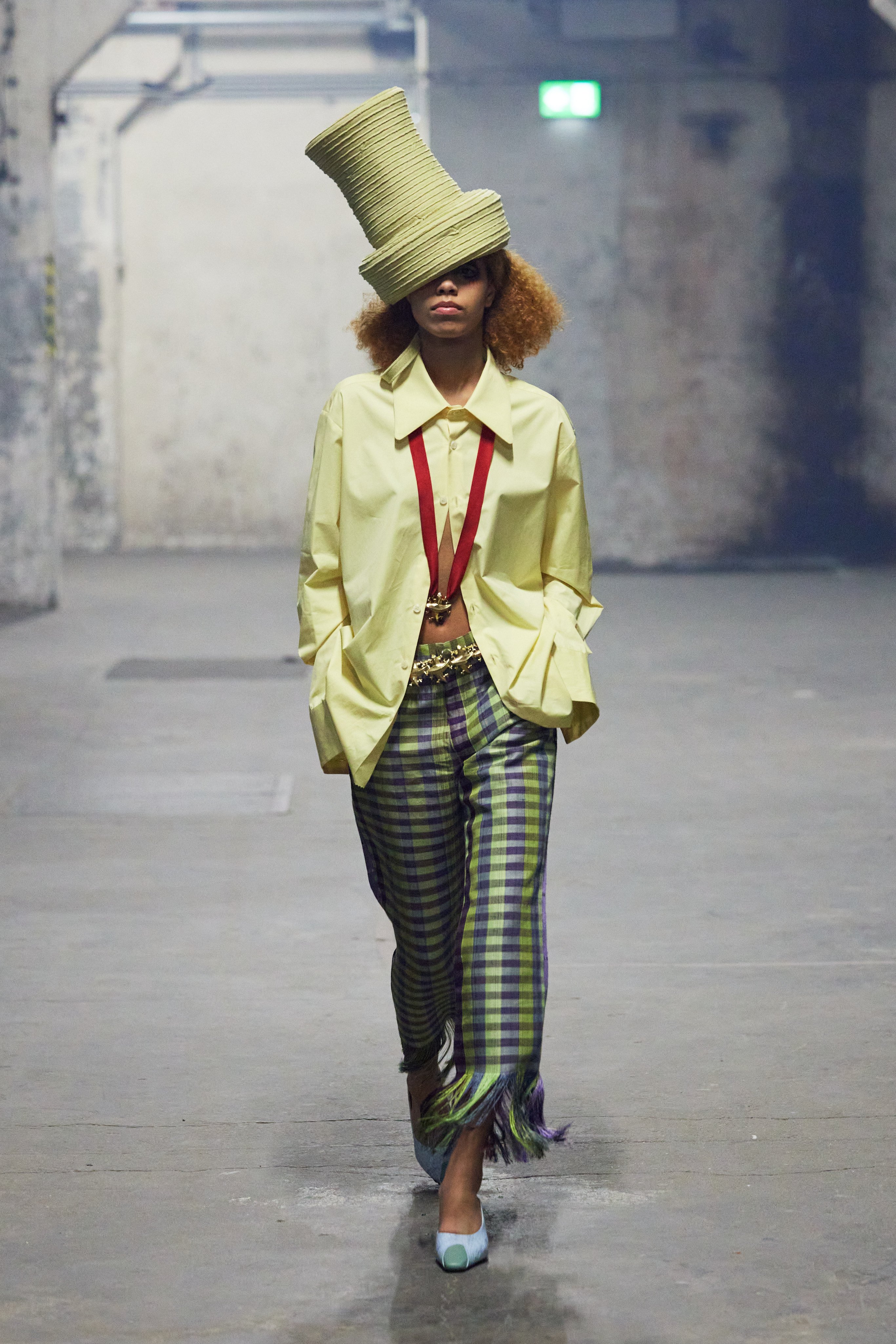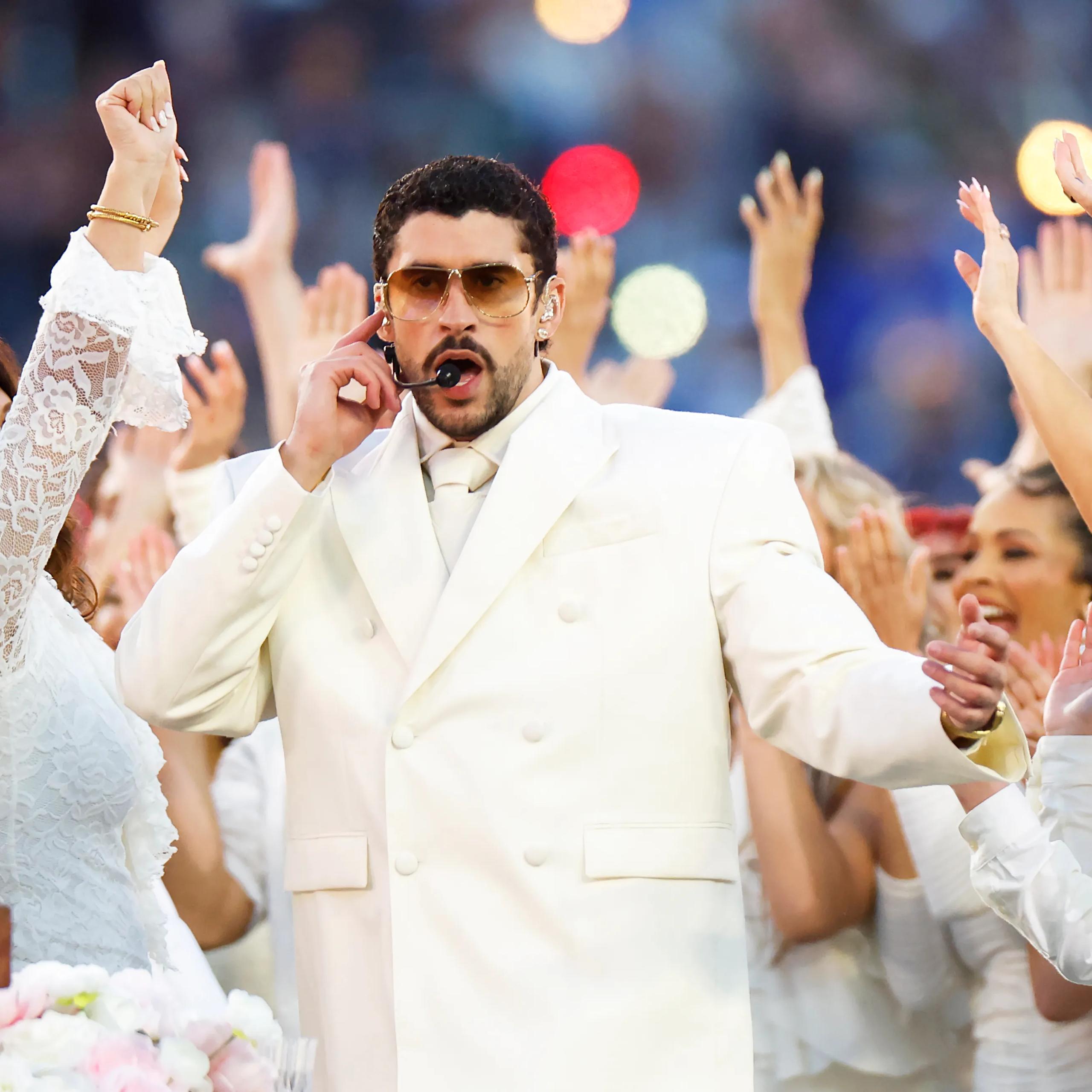Tyler, the Creator released his ninth studio album, Don’t Tap the Glass, on Monday, marking a sharp and electrifying turn in his already unpredictable creative journey.
The 10-track project, clocking in at just under 30 minutes, dropped with little advance notice. Its release was preceded by mysterious installations of life-sized figures enclosed in glass around Los Angeles and New York City, a listening party with no phones allowed, and the launch of a minimalist website featuring odd directives like “BODY MOVEMENT. NO SITTING STILL” and “ONLY SPEAK IN GLORY.”
The surprise rollout was quintessential Tyler— unconventional, immersive and steeped in aesthetic symbolism. But the album itself pushes even further.
Unlike the cinematic narrative arc of his 2024 LP Chromakopia, which leaned heavily into storytelling and introspection, Don’t Tap the Glass is driven almost entirely by rhythm. Influenced by funk, techno, and 1980s bass-heavy dance music, the album bursts with kinetic energy, inviting listeners to surrender their inhibitions and move.
“I’m tired of seeing people afraid to dance at shows,” Tyler said in a rare Instagram post. “Y’all worried about how you look or who’s recording. This one’s for movement. Let it go.”
The album opens with “Big Poe,” a track that flips Busta Rhymes’ “Pass the Courvoisier Part II” into a thumping dancefloor anthem. From there, Tyler bounces between retro disco influences and modern electronic flourishes, producing every beat himself.
“I’ll Take Care of You” interpolates elements of his 2015 project Cherry Bomb and Atlanta crunk staple Knuck If You Buck, while “Ring Ring Ring” rides a groove reminiscent of Michael Jackson’s Off the Wall. Despite the upbeat tone, a few tracks, such as “Don’t You Worry Baby” and “Tell Me What It Is,” allow room for softness and vulnerability.
At the heart of the album lies a clear theme: presence. The phrase “Don’t Tap the Glass” functions as a metaphor for resisting the surveillance culture that dominates modern life. Tyler urges listeners to reject the impulse to observe and judge and instead, to live in the moment.
The accompanying visuals and installations amplify this message. At the L.A. listening party, guests encountered mirrored environments, fogged windows, and signs warning against breaking the illusion. Phones were banned, and participation, not performance was encouraged.
“This is his most precise work to date,” said Amber Knight, a music curator who attended the event. “He’s using simplicity to say something big. It’s music as movement, not memory.”
Though brief in runtime, Don’t Tap the Glass represents a creative high point for Tyler, who continues to evolve as a producer, performer and visual artist. Nearly 15 years into his career, he still resists classification, proving once again that he is one of music’s most inventive forces.
The album is available exclusively via streaming platforms and Tyler’s website, donttaptheglass.com. A limited run of physical editions is expected to be released next month.
.svg)

.jpeg)





.png)

